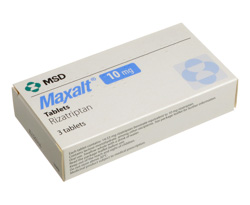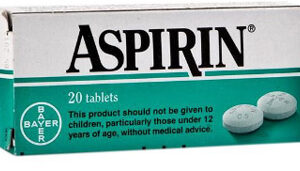Brand and Generic Names
Imitrex is the brand name for the generic medication sumatriptan. It is a prescription medication used to treat migraine headaches once they have started.
Chemical Classification
Sumatriptan is classified as a selective serotonin receptor agonist, specifically targeting 5-HT1 receptors.
Intended Use and Mechanism
Imitrex is used for the acute treatment of migraine attacks with or without aura in adults. It works by constricting blood vessels around the brain and reducing substances in the body that can trigger headache pain, nausea, sensitivity to light and sound, and other migraine symptoms.
Available Formulations
Imitrex is available in several formulations, including oral tablets, a nasal spray, and a subcutaneous injection.
Dosage and Administration
The usual recommended starting dose for adults is 25 mg, 50 mg, or 100 mg. The maximum single recommended adult dose is 100 mg. If migraines return or if a patient has a partial response to the first dose, a second dose may be administered after 2 hours, not to exceed 200 mg in a 24-hour period. The nasal spray and injection have different dosing requirements and are used based on the physician’s recommendation.
Dosing Modifications
Dose adjustments may be necessary for patients with hepatic impairment or those with a history of seizures. Dosing modifications might also be advised in elderly patients and those with risk factors for heart disease.
Medication Absorption and Bioavailability
Imitrex tablets have a bioavailability of about 14% due to first-pass metabolism. Time to peak concentration varies but typically is about 2-2.5 hours after oral administration. The nasal spray and injectable forms have higher bioavailability and a quicker onset of action.
Drug Interactions
Imitrex should not be used within 24 hours of treatment with another 5-HT1 agonist or an ergotamine-containing medication. Combining Imitrex with MAO-A inhibitors can increase the concentration of sumatriptan. Concurrent use with SSRIs and SNRIs can increase the risk of serotonin syndrome.
Contraindications
Imitrex is contraindicated in patients with coronary artery disease, a history of stroke or transient ischemic attack, peripheral vascular disease, ischemic bowel disease, uncontrolled hypertension, and hypersensitivity to sumatriptan. It is also not to be used within 24 hours of another 5-HT1 agonist or ergotamine therapy, and in patients with severe hepatic impairment.
Adverse Reactions
Common adverse reactions include tingling or numbness in the fingers or toes, dizziness, warm/hot sensation, injection site reactions, and more rarely, chest/throat/neck/jaw pain or tightness which often is not cardiac in origin. Serious cardiac adverse events have occurred in patients with risk factors predictive of CAD.
Pregnancy and Lactation Considerations
Imitrex falls under pregnancy category C. It should be used during pregnancy only if the potential benefit justifies the potential risk to the fetus. Sumatriptan is excreted in breast milk; caution should be exercised when administered to a nursing woman.
Pharmacokinetics in Special Populations
The elimination half-life of sumatriptan may be increased in elderly patients or those with renal or hepatic impairment, which could necessitate dose adjustment.
Overdosage Management
In case of overdose, the patient should be monitored, and supportive treatment should be administered. Hemodialysis does not effectively remove sumatriptan from the blood.
Storage and Handling Instructions
Imitrex tablets should be stored at room temperature, away from light and moisture. Injection and nasal spray formulations may have different storage requirements; refer to product labeling for detailed instructions.
Medication Disposal
Expired or unused Imitrex should not be disposed of via wastewater or household waste. Proper disposal methods include medicine take-back programs or following FDA guidelines for medication disposal.






Reviews
There are no reviews yet.